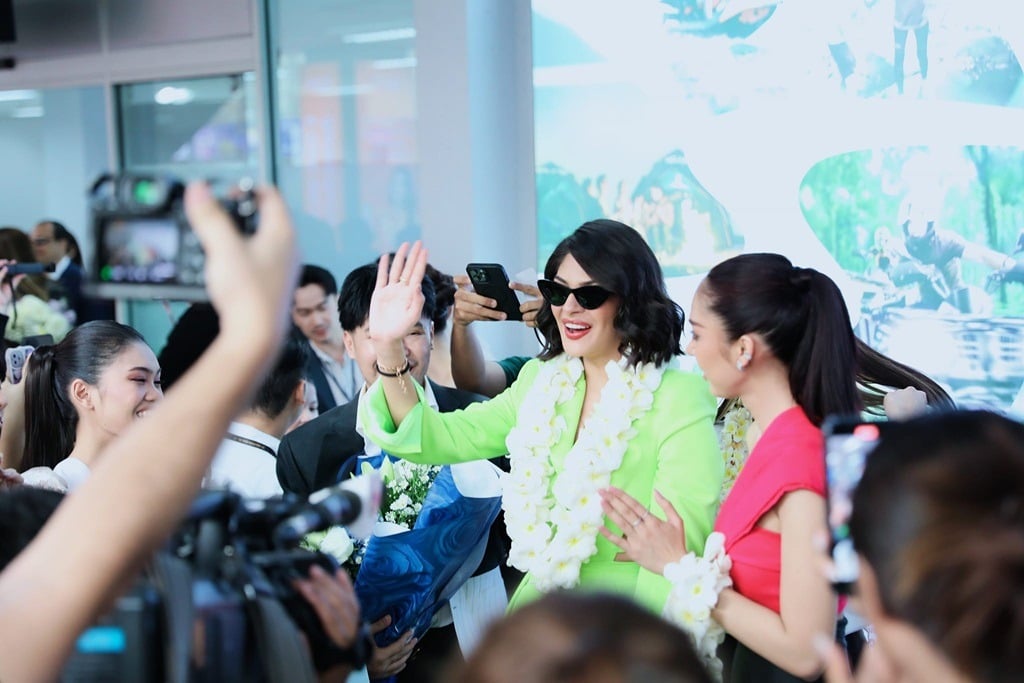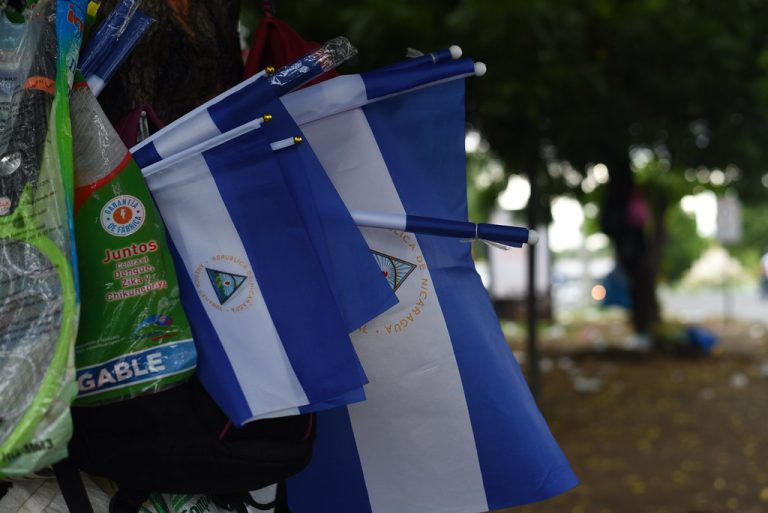31 de agosto 2022

News About Sheynnis Palacios Not Covered by Media Operating in Nicaragua

PUBLICIDAD 1M
PUBLICIDAD 4D
PUBLICIDAD 5D
Fear has been installed as the great gendarme in charge of repressing Nicaraguan society as a whole

Fear has been installed as the great gendarme in charge of repressing Nicaraguan society as a whole
War is peace.
Freedom is slavery.
Ignorance is strength.
George Orwell (1984)
The simplest definition of dystopia is the opposite of utopia. If by utopia we mean a world or an ideal situation that is implicitly positive, dystopia is the opposite: a world or situation that is undesirable for the common people because of its negative connotations. To put it clearly: a dystopian society is one in which despotic regimes deny human rights.
Both utopia and dystopia are usually theoretical constructs. Because of its Promethean nature, the former is usually enunciated from a political point of view, since it implies social change. The clearest example is Martin Luther King's timeless “I Have a Dream” speech of August 28, 1963, almost 60 years ago. Dystopia, on the other hand, has been described in literature as a warning by George Orwell (1984), Aldous Huxley (Brave New World), Ray Bradbury (Fahrenheit 451), and more recently by Margaret Atwood (The Handmaid's Tale). However, dystopia, unlike its nemesis, has found earthiness in ruthless dictatorships that have had no trouble reducing human beings to the status of expendable objects. Unfortunately, once again, among these dystopian societies is Nicaragua.
There are fewer and fewer spheres of daily life that have not been subjected to the oppression of the Ortega Murillo dictatorship. Even those of personal matters such as religious faith have entered into the shredder of rights, and those that have not yet, such as family relationships, have been conditioned by fear, the great instrument of the regime to bring self-repression to its highest exponent.
There is no need to create a “thought police” as Orwell anticipated. Fear has been installed in Nicaraguan society as the great gendarme in charge of repressing the entire Nicaraguan society, including the regime's fanatics. Any individual behavior (not to mention collective ones) is defined by fear in the same proportion as the annihilation of freedoms. Fear, like a slimy animal, is attached to the skin of every Nicaraguan in every corner of the country.
Fear of it being known how one thinks, a fear that forces one to lower one's voice when criticizing the regime, to avoid giving opinions in any public means of expression, and fear of clearly showing any sympathy for the symbols of the rebellion, such as the colors of the national flag. This same fear leads to distrust towards others, towards the closest circles of family and friends so that they do not know what thoughts are going on in their heads and, even worse, if they participate in any form of resistance.
The latter implies the rupture of old and new bonds of sociability, of the organic mechanisms of solidarity that are the substratum of the associative fabric that gives body to the different expressions of collective action. Instead, there is fear of visiting or being seen with friends known in the struggle against the dictatorship; there is fear of being associated with people who could be on the radar of the dictatorship for being opponents, being relatives of political prisoners, or for carrying out professions persecuted by the regime, be they human rights defenders, businessmen, journalists or priests.
There is fear to move freely, leaving the house and the city; fear of encountering a checkpoint, a policeman who without any reason captures you, plants drugs, weapons, or satanic plans to end the reign of the Ortega-Murillo family. In addition, there is fear of leaving the country; fear of having your passport taken away and not being allowed to leave, but also fear of exile, of not being allowed to return to your country, fear of being stranded anywhere in the world without resources or hope.
In synthesis, in the dystopian society that Nicaragua has become, fear is a toxic atmosphere under which the rights of Nicaraguans have lost the original meaning with which they were proclaimed: instead of being thresholds of citizen freedoms, they have become forbidden spheres against which it is better to repress oneself. For the dictatorship, rights are the scenes of the crime they do not hesitate to commit again. The Universal Declaration of Human Rights is the road map that shows them where to shoot. The repressive laws passed at the end of 2020 are the best proof of this predatory spirit of rights and freedoms.
If before it was normal to organize in any way, now the best way to live is “not to get involved in anything”; if it was normal to give your opinion in as many media and networks as you wanted, now it is better to erase all possible traces; if before each person saved as many photos and messages as they wanted on their phones and computers, now it has become a habit to delete daily messages and compromising photos; if they treasured books, magazines, documents in which they had participated, now it is better to destroy them, erase the memory to not facilitate the work of the henchmen. There is a justified fear of not knowing if one is on a blacklist of tyranny.
As it usually happens, the reality imposed by the Ortega dictatorship has surpassed any fiction imagined by the authors who announced the dystopia. In their delirium, the hierarchs of the Nicaraguan dystopia have reached the extreme aberration of penalizing people not only for what they do but also for what they have done and -here is the greatest abjection- for what they might do. Since for the dictatorship the past is an open interval, one never knows for what sins of the past a person could be considered an enemy of the Christian, socialist and solidary kingdom; and since the future is a crystal ball in the hands of the matron, the uncertainty about possible future activities of Nicaraguans was resolved through the dystopian accusation of “conspiracy to undermine national integrity”, a typification in which any citizen's aspiration for a country could fit, from the lyrics of the national anthem to the old FSLN slogan of “free homeland or death”.
The dystopia that Nicaragua is experiencing is the equivalent of the dictators' fear of losing power, as Gioconda Belli pointed out resorting to Michel de Montaigne in these same pages, a fear greater than the state of terror imposed on the population. From literature, we can extract that even in conditions of dystopian societies, neither the two minutes of daily hatred of the Ministry of Truth, nor the burning of books, nor the appropriation of women's wombs for reproductive purposes, can bend the legitimate struggle of the peoples to crystallize their own utopias, although this, as Eduardo Galeano said, is like the horizon that moves away as one approaches it. In this defiant character of utopias against oppression lies the germ of the unwavering hope of the Nicaraguan people to be free again.
This article was originally published in Spanish in Confidencial and translated by our staff
PUBLICIDAD 3M
Politólogo y sociólogo nicaragüense, viviendo en España. Es municipalista e investigador en temas relacionados con participación ciudadana y sociedad civil.
PUBLICIDAD 3D